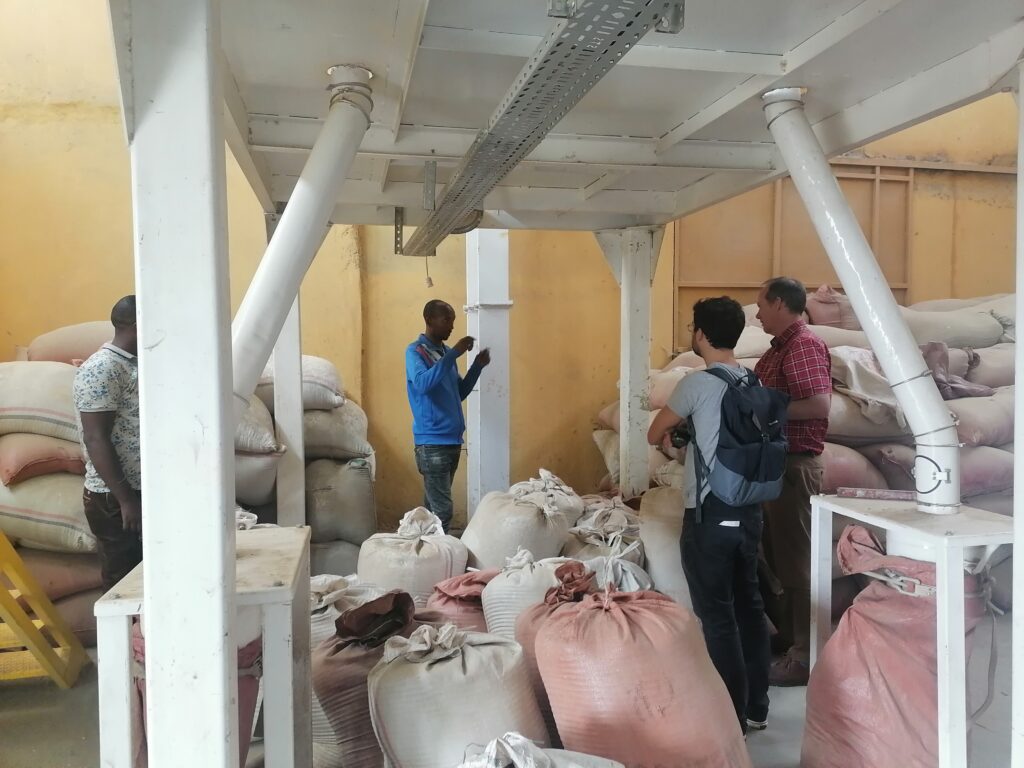Capacity building approaches in Ethiopia: insights from an AMEA team visit

In March 2022, the AMEA global team visited Ethiopia to meet with members and partners, host a workshop on Business Development Services and visit AMEA member project sites. Here are some of the capacity building approaches AMEA members and partners are using with Farmer Organizations in Ethiopia:
The AMEA team traveled to the Arsi zone of the Oromia region to witness the different components of an IFC malt barley project using SCOPEinsight assessment tools and the Agribusiness Leadership Program (ALP) training and coaching curricula. The project is implemented jointly with Soufflet Malt Ethiopia, a leading French malting company that recently began operations in Ethiopia. In Assela, the team spoke with a group of model farmers prior to an ALP coaching session, while in Bekoji, they met with the leadership of Galema Cooperative Union, which has also received ALP training. In Sagure, they visited a farm service center that supplies agricultural inputs to farmers in the area, and uses an online platform, Lersha, to manage input orders and distribution.
The team also met with the leadership of Uta Wayu Cooperative Union in Shashemene (Oromia), which was supported by Agriterra until its graduation in 2020. It was an opportunity to learn from Agriterra’s approach to Farmer Organization capacity building (using a different set of tools to those in the AMEA Toolbox), which has helped Uta Wayu successfully grow its membership, capital and operations over six years. Utilizing an internal capitalization scheme, the union set up its own wheat flour milling facility that supplies various food processors in the area, and is now seeking to start its own pasta production operation.
Finally, the team rounded off the visits in the Arba Minch area (SNNP region) to meet with Hidota Cooperative Union and Chelashe Demba Primary Cooperative, supported by Nuru Ethiopia. Nuru’s approach entails comprehensive support to the community that goes beyond capacity building of Farmer Organizations. The organization helped to establish the union and 30 Primary Cooperatives which fall under the union, who are being supported through an integrated approach using a number of AMEA tools: SCOPEinsight, ALP, Agribusiness Coaching (ABC), and the LINK methodology. Nuru’s iterative approach to assessment and training enables lessons from earlier phases of capacity building to be incorporated into future ones.
Overall, the team gained insight on the various ways in which AMEA members are building the professionalism of Farmer Organizations and heard about the successes and challenges directly from Farmer Organization staff and farmers. The lessons learned will be fed back into AMEA’s future plans and will help facilitate stronger knowledge sharing throughout the network.
